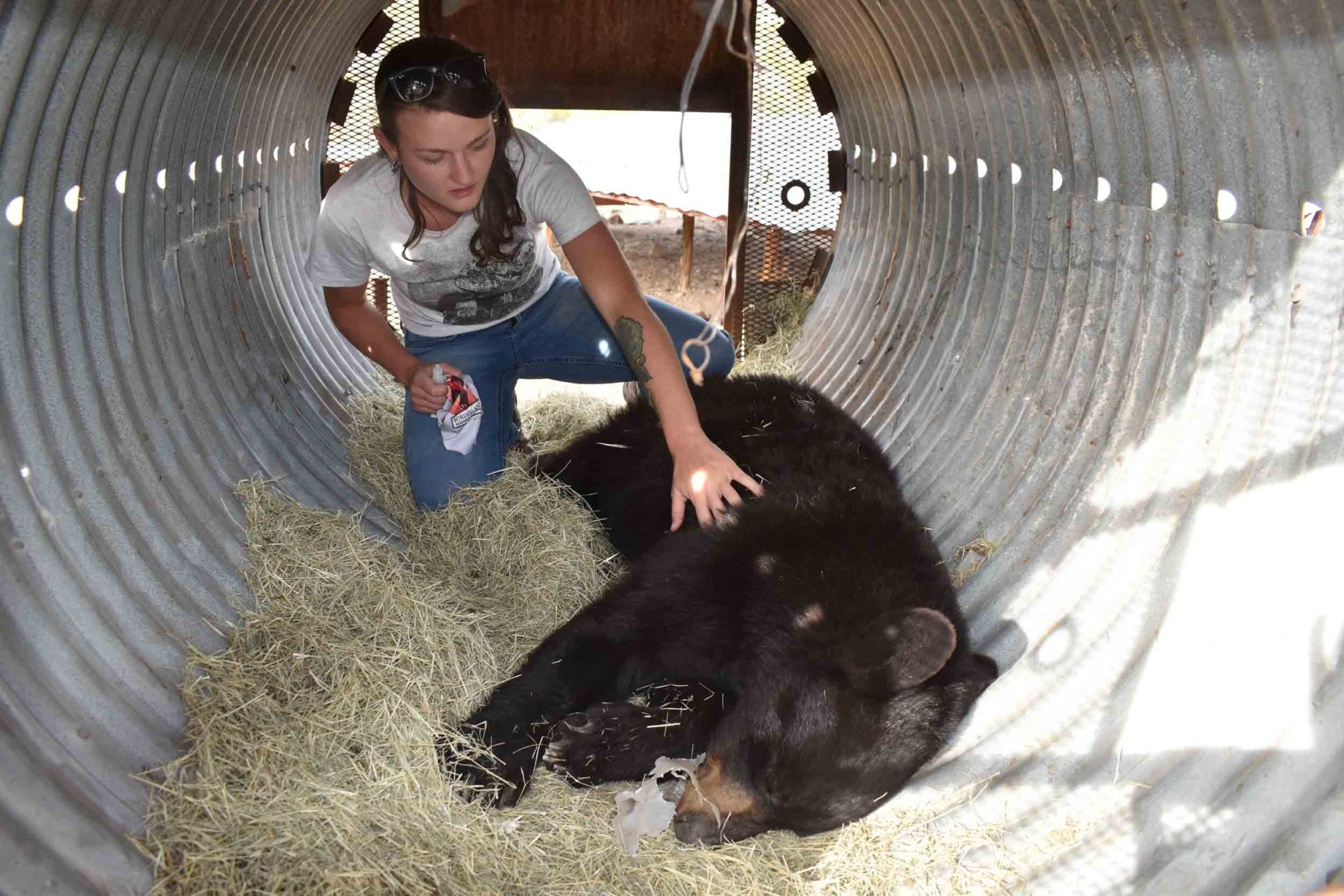
Nicole Dickan didn’t set out to become a bear biologist at first. In fact, she didn’t even know wildlife biology was a field she could enter. What she did know—after years of hiking, camping, and working in an animal shelter as a teenager—was that she wanted to work with animals. That interest led her to Canisius College, where she double majored in animal behavior, ecology, and conservation, and psychology. Somewhere between animal cognition courses, fieldwork in the Belizean rainforest, and collaring bobcats in the Black Hills, a new path took shape—one defined by curiosity, grit, and an uncommon empathy for the animals she studies.
“I spend a lot of time trying to get into the mind of whichever animal I am studying. I think about what may be motivating them, how those motivations change over time, and what factors may be impacting their risk assessment strategies,” she said. “That helps me when I’m tracking them and trying to understand their behavioral decisions.”
That mindset—equal parts scientific and intuitive—led Nicole from New York to Texas, where she earned her master’s degree in Range and Wildlife Management at the Borderlands Research Institute (BRI) at Sul Ross State University. Along the way, she trapped bears in the desert, led a research team, presented at international conferences, and helped expand what we know about black bear behavior in arid landscapes.
Her thesis research focused on fine-scale behavioral patterns in recolonizing black bears in West Texas. “I was able to model different behaviors—like foraging, resting, and traveling—then look at how their activity patterns changed throughout the seasons,” she explained. “They become more nocturnal in the summer when it’s hot and rely more on deer feeders and other attractants in the fall.”
It was her first time working in a desert environment—and her first time in Alpine, which she drove to sight unseen. “Everywhere I had worked before was deeply forested,” she said. “My mind was just absolutely boggled that in the sandy desert, with no trees nearby, there were bears we were trying to trap.”
But the work suited her. Nicole led field crews, trained new technicians, and handled about 30 black bears over the course of the project—adding to her already impressive experience from previous positions in Oklahoma, Idaho, and beyond. “Any day you get to handle a bear is a rewarding day,” she said. “It never really wears off.”
Her fascination with bears goes beyond field work. “They’re extremely intelligent—right up there with whales and primates,” she said. “They’ve even been documented adopting cubs that aren’t their own, which is incredibly uncommon in the animal kingdom.”
At BRI, Nicole found a small, tight-knit community that fit her style. “I like having a close working relationship with my professors and meeting with them regularly,” she said. “That kind of support helps students succeed.”
And now, she’s putting those skills to work. Nicole recently accepted a wildlife specialist position with Vermont Fish and Wildlife Department, where she’ll be helping lead a new black bear reproduction study in the Green Mountain National Forest. “They’re expanding into new areas where the food availability is really different,” she said. “We want to see how that affects cub survival and reproductive success.”
The job came about through a connection she made while presenting her research at an international bear conference—one of several where she represented BRI. “It feels like I’m entering the real workforce for the first time,” she said. “I’m just ready to settle down a little bit and enjoy the next chapter.”
Looking back, she says BRI prepared her well. “Having my own project to develop and manage gave me experience I’ll carry into this new role. And working with technicians taught me how to lead a team and train others.”
The next phase of Nicole’s journey is just getting started. But one thing’s already clear: the bears—and the science—are in good hands.
